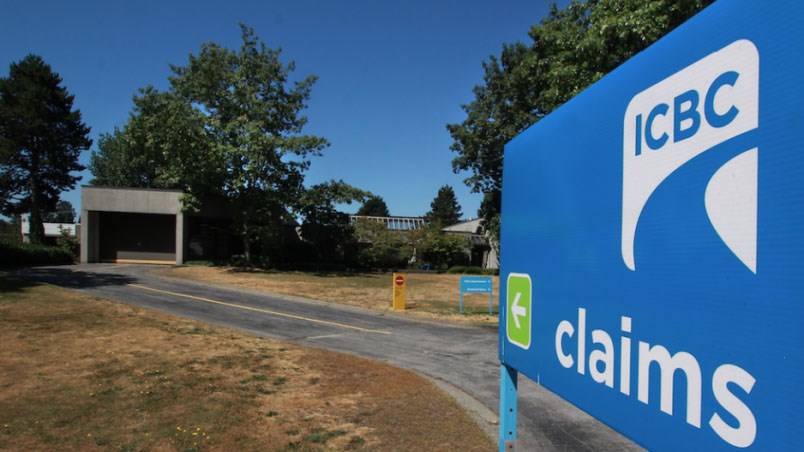A sa国际传媒 man must pay a driver's $300 ICBC damage deductible following a punching incident in a grocery store parking lot, the Civil Resolution Tribunal has ruled.
The incident happened on May 4, 2022, when William Cornish parked next to Donald MacLeod, according to a from tribunal member Eric Regehr.
When Cornish opened his truck door, he hit MacLeod’s car. There was no damage but the incident did spark an argument.
During the verbal exchange, MacLeod smacked Cornish's vehicle.
“(Cornish) retaliated by punching or smacking (MacLeod’s) car, denting it,” Regehr said.
MacLeod had the car repaired and ended up paying a $300 deductible. He alleged Cornish agreed to pay the repair costs.
‘In any event, (MacLeod) says that (Cornish) is responsible for the damage and should therefore be responsible for the deductible,” Regehr said.
Cornish did not dispute denting MacLeod’s car, but denied agreeing to pay for the repairs. He argued MacLeod should pay as he had a part in escalating the dispute.
Both parties agreed that Cornish apologized for denting the car.
On May 10, 2022, MacLeod emailed Cornish an autobody shop’s estimate for repairing the dent. MacLeod acknowledged the estimate — around $1,200 — was higher than he expected.
Cornish responded that he had spoken to the autobody’s estimator about the cost. He said he had started an ICBC claim because of the high repair cost and suggested that MacLeod do the same. He told MacLeod that ICBC would then pay for the repairs.
“Notably, (Cornish) did not deny responsibility for the repairs in the email,” Regehr said. “I see no reason why (Cornish) would phone the estimator to discuss the repair cost if he had not already agreed to pay. He would also have no reason to begin an ICBC claim, and ask (MacLeod) to do the same, except to minimize his contribution to the repair cost.
“I therefore find it implicit in (Cornish’s) email that he had previously agreed to pay the repair cost,” Regehr said. “I therefore find that the parties had reached a settlement agreement, which was a binding contract that (Cornish) could not later back out of because he had 'second thoughts.'"

